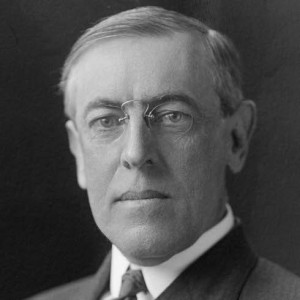 In 2015, Princeton University in New Jersey established a committee to determine how the university should deal with the legacy of the university’s thirteenth president, Woodrow Wilson. At Princeton, Wilson had refused to consider the admission of Black students. Wilson who went on to become the 28th president of the United States, racially segregated the federal government workforce and appointed White supremacists to his cabinet. He held a screening of Birth of a Nation, a film glorifying the early Ku Klux Klan, at the White House.
In 2015, Princeton University in New Jersey established a committee to determine how the university should deal with the legacy of the university’s thirteenth president, Woodrow Wilson. At Princeton, Wilson had refused to consider the admission of Black students. Wilson who went on to become the 28th president of the United States, racially segregated the federal government workforce and appointed White supremacists to his cabinet. He held a screening of Birth of a Nation, a film glorifying the early Ku Klux Klan, at the White House.
In 2016, the university’s board of trustees declined to remove the name of Woodrow Wilson from the School of Public and International Affairs and an undergraduate residential college that bears his name. At that time, the board stated that from this day forth the university must be “honest and forthcoming about its history.” They also stated that the university should be transparent “in recognizing Wilson’s failings and shortcomings as well as the visions and achievements that led to the naming of the school and the college in the first place.”
Now the board of trustees has reversed course and has decided to remove Wilson’s name from both the School of Public and International Affairs and the undergraduate residential college, which will now be known as First College. A statement from the board of trustees said that “as our nation wrestles with its history in this moment, it is important, especially at institutions committed to seeking the truth, that we recognize the complexity of historical figures and that we examine the entirety of their impact on the world. Though we conclude today that Wilson’s racism makes him an inappropriate namesake for the University’s School of Public and International Affairs, we recognize that Princeton has a continuing responsibility to remember his achievements even as we honestly and publicly contend with his failures.”
Christopher L. Eisgruber, president of Princeton University, stated that “Wilson’s racism was significant and consequential even by the standards of his own time. He segregated the federal civil service after it had been racially integrated for decades, thereby taking America backward in its pursuit of justice. He not only acquiesced in but added to the persistent practice of racism in this country, a practice that continues to do harm today.
“Wilson’s segregationist policies make him an especially inappropriate namesake for a public policy school,” President Eisgruber added. “When a university names a school of public policy for a political leader, it inevitably suggests that the honoree is a model for students who study at the school. This searing moment in American history has made clear that Wilson’s racism disqualifies him from that role.”













Very good article. But I also think it only fair to note that President Wilson was a Democrat. This was never mentioned in an otherwise fine article. Wilson, a Princeton Alum, has long been noted for his awful and divisive racism. Sad legacy.
The timing of this new decision, reversing a previous decision in favor of the status quo, is most unfortunate.
It suggests that university administrators are acting emotionally, under pressure from the BLM “Mob”, rather than rationally and carefully.
This is not a defense of Woodrow Wilson, or his racial attitudes. Just an expression of concern about the strength and currency of the “Cancel” culture.